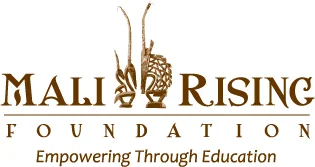The culture of Mali is vibrant and diverse. With a population of more than 17 million, Mali is a melting pot of languages, ethnic groups, and traditions. Yet Mali is one of the poorest countries in the world, and it faces many challenges.
Mali is a giant, land-locked country in West Africa. The country is known for its strong musical traditions as well as its four UNESCO World Heritage Sites. Mali is also famous as a historical center for learning and debate.
During the colonial period Mali was controlled by France. In 1960, Mali obtained its independence and then struggled until the early 1990s, when democracy stabilized and allowed for some economic and social progress. For decades, Mali was known as a relatively stable and relatively democratic country in an often troubled region. However, in 2012 a coup and an uprising in the north of the country caused widespread problems and fear.
Learn more about Mali
History
Mali was once home to one the richest empires in history, and long served as an important trading and intellectual outpost. Learn more.
Music
Today, Mali is perhaps best known for its great music. Explore this overview of traditional Malian music. Check out the The Music of Mali: 10 Songs You Must Hear for a great sampling of modern music.
Art
In addition to music, Mali has wonderful traditions in fabrics, sculpture, architecture, and other genres.
Basics
National language: French. Capitol: Bamako. Population: 17.8 million. Economic base: largely agriculture, including cotton, millet, rice, corn, vegetables, peanuts, cattle, sheep, and goats.
With French support the government has regained control, but real problems remain. The northern part of the country still faces active dissent and terrorist attacks in the capitol and southern regions, while still very rare, have increased in the last year.
While the security situation is important to consider, it also underlines the importance of investing in education as a key strategy for positive development. Today Mali’s adult literacy rate is only 33.4 percent. This means Mali faces an enormous challenge when it comes to developing the teachers, farmers, doctors, politicians, and other leaders necessary to build a stable and prosperous future.
Education is the catalyst for every area of development. For Mali, a new generation of empowered, educated youth would lead to greater investments in the local economy, a smarter workforce, better healthcare options for families, and a stronger country as a whole.
Read more about why we focus on education, and particularly middle school education, as an empowerment tool.



